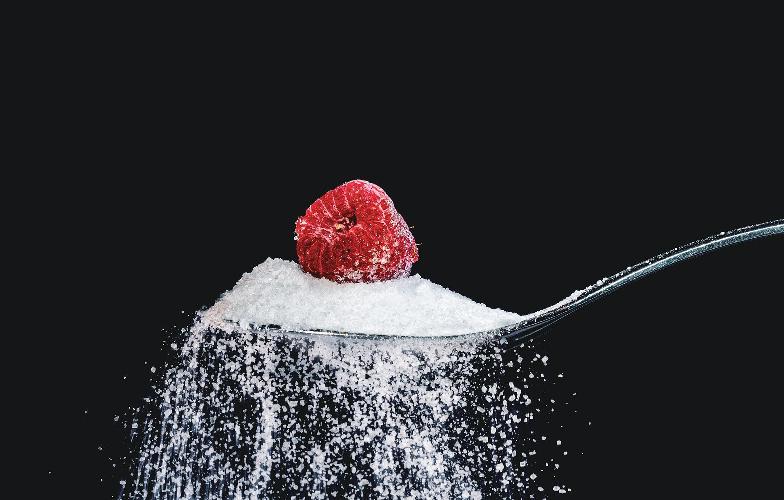Type 2 diabetes is a chronic disease in which not enough insulin is produced by the pancreas to help maintain blood sugars within a tight range. This article will cover ways in which diet can help better manage blood sugars to help you avoid developing the long-term and very serious complications from diabetes. But first, let’s take a step back and get an understanding of how our body uses food to give us energy and why insulin is vital.
The body is formed of millions of cells and for them to work properly, they need energy; Energy in a simple form that comes from the food and beverages we consume. Whenever we eat carbohydrates (think pasta, bread, noodles, rice, potatoes, fruit, some vegetables and sugary-tasting foods and drinks) or have a drink that contains sugar, our body breaks the carbs down to their simple form: glucose, aka sugar. This sugar is released into our bloodstream whereby insulin then helps shuttle this sugar into our cells, where it is needed to give us the energy we need. Now, when you have diabetes, two things are at play:
- The pancreas is not producing the correct amount of insulin.
- The cells are not responding to this insulin- this is known as insulin resistance.
What then happens is that our cells are starved of energy as the sugar builds up in the blood stream rather than fueling our cells. If left untreated, this can lead to a range of problems such as increased risk of heart attacks, impotence, stroke, kidney failure, loss of eye sight and amputation.
If you have diabetes, it is important to keep blood sugars as close to the normal range as possible. In the long-term , this will help reduce the risk of developing the complications that arise from having diabetes. The UK suggested targets are as follows:
- Blood sugar before meals: 4-7mmol/L
- 90 minutes after meals: under 8.5mmol/L
While these are suggested targets, they will differ on a case-by-case basis.
Now that we know the importance of keeping blood sugars controlled and the ideal range in which they should be, lets discuss some ways that the correct nutrition strategies can help to keep them in control.
Tip #1: Increase protein in your meal
Protein is made up of building blocks known as amino acids. Now, we have already spoken about how in diabetes, the pancreas is less efficient at secreting insulin. What we actually mean is glucose-stimulated insulin secretion. Thing is, amino acids are also able to stimulate the pancreas to release insulin meaning that when you eat a high protein meal, your pancreas is nudged into releasing more insulin due to having more amino acids in circulation. This is known as amino acid-stimulated insulin secretion. Pretty nifty, eh?
Tip #2- Increase fibre in your diet
Ok, I know fibre is all the buzz right now, but it is with good reason! Although it sounds like a boring nutrient, in recent years, scientific discoveries have unravelled it to be one of the most interesting, exerting effects that could potentially impact the whole body!
In order to understand why fibre is so important, we have to understand what it actually is. Fibre is a type of indigestible carbohydrate meaning that we cannot break it down. Therefore, it cannot raise our blood sugar and so will not give our cells any energy. Instead, fibre passes undigested into the colon where it is fermented by gut bacteria. This formation process produces by-products, some of which are known as short chain fatty acids. It has been theorised that these fatty acids may play a role in glucose metabolism and may be able to increase insulin secretion.
Tip #3- Wholegrain is your best friend
When choosing carbohydrate/flour options, always aim to go for the wholegrain options. Multigrain bread for example simply means various grains have been used but they can still be the refined version. Ideally, a wholegrain AND multigrain seeded bread would be best. Additionally, opt for wild rice, brown rice and wholegrain pasta instead of their white counterparts. They are known as having a low glycaemic index which means that they help keep the blood sugars steady, as opposed to the refined versions, which instead cause a quick peak in blood sugars after consumption. This quick peak makes it harder for your pancreas to release enough insulin to deal with the spike of glucose.
And there you have my top three tips to help get you started on managing your blood sugar. If you think you would benefit from having someone fine-comb your diet and give you individualised, practical advice to help you manage your diabetes, then book in for a FREE discovery call by clicking here and find out how I can help you get your blood sugars under control within 90 days.

